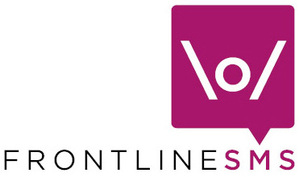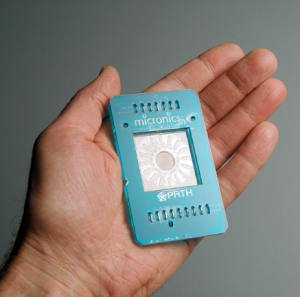Archive for the ‘Precedents’ Category
txteagle

Another Nathan Eagle project is txteagle. txteagle leverages the power of vast numbers of SMS users, paying them small fees for creating an ‘artifical artifical intellegence’. The system can help check for search relevancy, translation accuracy, and blog sentiment.
“A message oriented phone system for low cost connectivity”
I stumbled on a paper by R.J. Honicky, et al., called “A message oriented phone system for low cost connectivity” when I was on Nathan Eagle’s publication page. Nathan Eagle is the PI for EPROM.
This paper excited me because it’s about an idea for a voice message based system for people living in developing countries. The system it proposes is much more concerned with hardware and infrastructure than my Pigeon idea, but it a great point for helping me to continue generating questions about communication in developing countires and to begin more academic research.
I had been thinking about Pigeon more in terms of international calling, but domestic use could be useful also. As I’ve been talking to people about mobile phone use in Belize, there are still hoops people will jump through to save their credit. Something that could help them save money and communicate more easily would have a good chance of being adopted.
The paper mentions how a voice message system would effectively put people on the grid who live in areas where there is no mobile coverage but travel often to areas with coverage. In this case, asynchronous communication may be beneficial since when a person will be avaliable is unknown. Honicky’s proposed system would allow people to record when they are unconnected and then to upload when they are in a connected area.
New Blogs I’m Following
FrontlineSMS
FrontlineSMS is a easy to use SMS gateway designed for use by NGOs from kiwanja.net and its founder Ken Banks. Version 2 of the system just went live. The system certainly answer the problem of communication in developing nations.
Coverage: Discovery News, White African, 160 Characters,
The Kiwanja blog and their Social Mobile Facebook Group.
“A Primer on Smart Cards”
A Primer on Smart Cards, David Pouge
via Carrie Mae
From Design and the Elastic Mind
Amida Simputer is a simple handheld computer for use in developing regions. It has multiple UI options, takes handwriting input, and is multilingual.
Lab-on-a-card is diagnostic device for use by health care workers with little training. It quickly tests for enteric infection. They’re also working on cards to test for sexually transmitted diseases and fever illnesses.
Text free user interfaces aims to make computer usage accessible for those who are non-literate (from Microsoft India, see previous post).
Microsoft India
Need to spend some time looking at Microsoft’s Research team in India, specifically their Technology for Emerging Markets, even more specifically:
- Financial service delivery to the poor and technology - which is looking into how those who live in poverty access financial services
- Warana unwired - which replaced PCs with phones using an SMS gateway for a rural sugarcane coop
- The use of ICTs by small and informal businesses - which looking into information and communication habits of micro-businesses (businesses with less than 5 people)
- The digital studyhall - which is “Netflix + YouTube + Kazaa”
Eric Brewer, “Technology for Developing Nations”
Technology for Developing Nations (1 December, 2006)
Eric Brewer, UC Berkley - TIER, TIER blog
Response: Most important ideas for me from Brewer: non-loss business, co-development, wifi for bootstraping.
Notes:
- Technology can make a difference
- Advocates for focusing on the rural poor and urban slums, as urban areas are moving forward due to market forces
- Development is: governance and technology
- Bringing wireless technology to an area can bootstrap on other infrastructure
- Wireless infrastructure is incredibly affordable, only dirt roads are cheaper
- non-loss business - sustainable but not profit generating business
- Technology solutions can be franchised from a third party loan to create a non-loss business
- River Blindness, Black Fly eliminator - used sensors to look for areas prime for black fly and sprayed - protects 30 million people from infection and makes 100,000 square miles now viable for farming
- Poor people spend lots of money, and even the poorest have a little disposable income, and they spend money on entertainment and communication, 7% of income in rural Bangladesh spent on telephony
- Mentions that technology could help in long distance money transfer ***
- Grameen Bank, Bangladesh- micro-loaning, began when noticed that poor friends paid back their small loans
- Grameen Telecom- microloans for village phones, a mobile phone woman in each village, a “super pay phone”
- Scaled with micro-finance- (***phone based money transfer, micro-financed, franchised)
- Make some project in the first six months, make shorter-term plans. 5 year plans are not ok with technology; things change too quickly.
- Develop something with a group and deploy- co-develop, co-deploy
- They have a $50 board to make a more efficient solar system
- Working mostly on long-distance wireless
- Mainly employed with rural telemedicine with rural eye clinics in India.
- These clinics serve areas without doctors. They doctor video conferences in and tells patients things after conferencing with a ‘nurse’
- They get people to go get cataract surgery
- They’ve made these clinics scalable, they’re deploying 50 more
Literacy
- Voice is a big part of developing nation communication
- there has been no work on voice recognition for many languages
- Instead of goings at it typically, they’re going to do sound recognition - won’t work with translation but will perhaps work with user interface interaction
- Make the recognizer context sensitive, minimize the legitimate words that can come in
- They’re recognizing digits well with this method
- How do you get training data from illiterate people? Using fingers to get people to say them, make people comfortable, use locals to interview, use a phone versus a microphone
Education
- cell phone game to teach english
Paper mentioned to look up: “The Case for Technology for Developing Regions” - E. Brewer et al. IEEE Computer, June 2005


